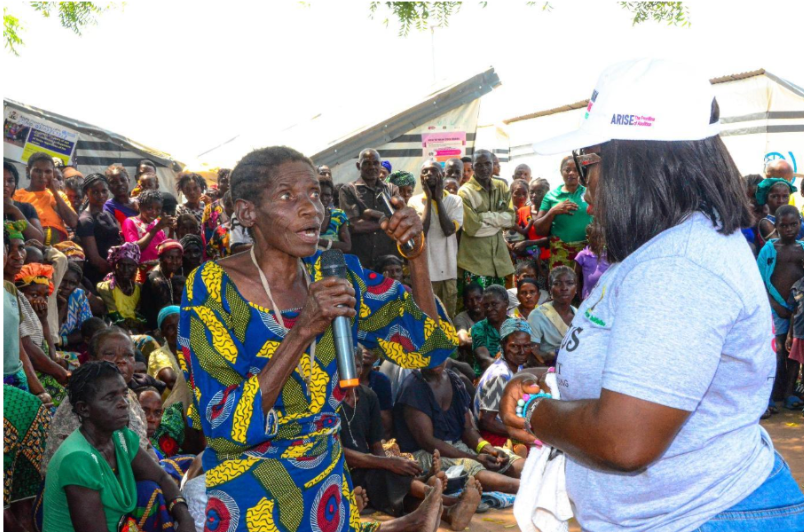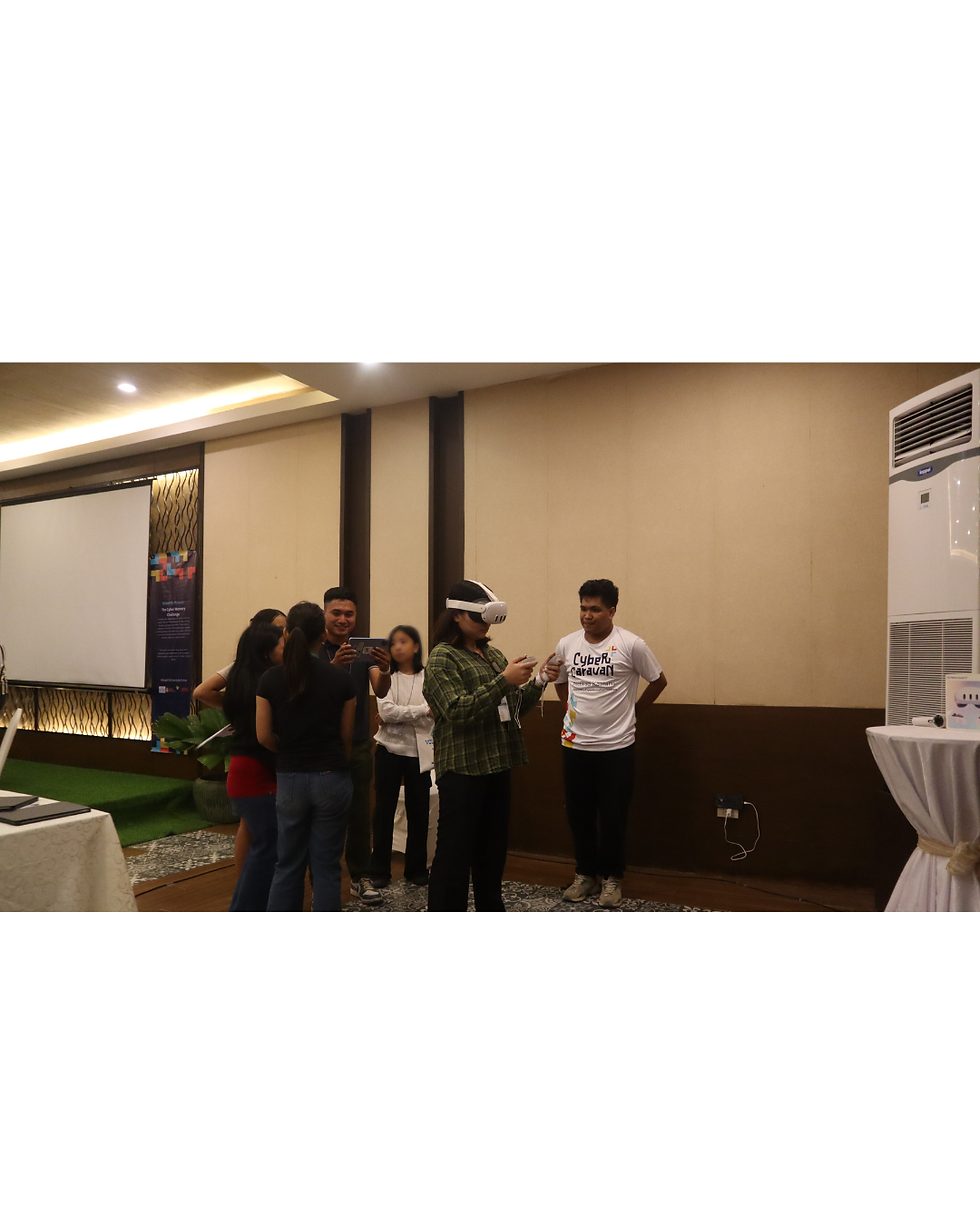Arise OHCHR submission on human trafficking in the agricultural sector
- Feb 1, 2022
- 7 min read
On 31 January, Arise made a written submission to the OHCHR Special Rapporteur on Contemporary Forms of Slavery, especially women and children, Ms. Siobhán Mullally. This was in response to a call for input on trafficking of persons for purposes of forced labour, slavery or servitude in the agricultural sector.
The objective of the report is to examine the limits of current legal and policy frameworks that contribute to risks of trafficking in persons in the agricultural sector. The Report will be presented to the Human Rights Council in June 2022.
Due to our belief in a person-centred and locally-led response to slavery, our submission is built upon the experiences of our frontline network. We hope that by magnifying the insight of those fighting slavery on the ground, our contribution will shine a light on the strength and potential of better supported prevention in source communities.
Please download PDF version above to view annexes, footnotes and references.
Arise submission to the UN Special Rapporteur on trafficking in persons, especially women and child on the trafficking of persons in the agricultural sector
About
Arise is an anti-slavery and anti-human trafficking organisation working across the world to protect communities from exploitation, with a focus on long-term prevention work in source communities. We believe that local groups and their networks are a hugely powerful, but an often marginalised and underdeveloped, resource in the fight against slavery. As a result, we work with frontline organisations and their networks, through strategic grant giving, direct partnership, training and capacity building, amplifying their voices within the human rights and policy communities.
It is due to our belief in a person-centred and locally-led response, that our submission is built upon the experiences of our frontline network. We hope that by magnifying the insight of those fighting slavery on the ground, our contribution will shine a light on the strength and potential of better supported prevention in source communities.
Introduction
In order to adequately provide solutions to the increase in trafficking in the agricultural sector, it is important to understand the characteristics of agricultural work.
Agricultural work is often isolated and transient, and due to its nature, income can become irregular. The first most common element of trafficking in the agricultural sector is through the use of ‘force’ by the employer. This includes forced isolation in migrant camps, forced restricted ability to communicate with the outside world, and abuse, both physical and mental. The second most common element of trafficking is ‘fraud’. This is the means by which the employer lures vulnerable victims in through making false promises about pay and the state of living; alternatively this also includes altering contracts and charging extortionate recruitment fees for jobs that pay low wages. The final most common element of trafficking in this sector is ‘coercion’. Victims may experience but are not limited to threats of harm being made to them, their family or loved ones; threats of deportation; debt bondage due to extortionate fees for food, rent and transportation and the confiscation of documents.
Looking at each element in turn, it is evident that in order to reduce the occurrence of trafficking in the agricultural sector, solutions must be provided to mitigate the conditions inflicted upon the victims by each element. The impact of ‘force’ must be met with the means to counter isolation and restricted communication. The results of ‘fraud’ highlight the importance of ensuring workers, particularly those vulnerable to trafficking, are aware of their rights.
Please note that in this submission Arise is using ‘employer’ to mean anyone that is in a position of power over someone else working within the agricultural field, and might not, therefore, be the person who holds the contract but might be a direct manager. Arise is using ‘labourer’ to mean someone who is working within the agricultural sector as a day, or temporary, worker and is at risk of trafficking and exploitation.
What makes someone vulnerable to trafficking in the agricultural sector?
In addition to conditions inflicted upon the labourers by their employer, victims of trafficking in the agricultural sector may be vulnerable due to migration, seasonal or temporary work and isolation - all of which have been exacerbated by the Covid-19 pandemic (see Annex B).
Agricultural work is dependent on the harvesting seasons, and the impact of climate change, the weather has become increasingly unpredictable meaning that work is becoming increasingly precarious. The characteristics of such seasonal work often leads to employers relying on temporary work. As a result, labourers are left without regular work and the cycle of vulnerability to trafficking and abuse is perpetuated.
Occurring in rural and sparsely populated areas, agricultural labourers have little access beyond their immediate area, meaning that they become dependent on provisions provided by the employer, e.g. housing and food. Employers are known to take advantage of their isolation by exerting control over their labourers , with physical and emotional barriers to assistance preventing victims from accessing help. In the same way, isolation plays a key role for migrants, who often experience isolation in migrant camps.
A frontline focus on migration
Migration, as mentioned above, can be a source of vulnerability for potential victims of trafficking. The nature of seasonal and temporary workflow results in labourers not having the opportunity to spend enough time in each community they work in, limiting their accessibility to resources and support which would otherwise better help them to understand the local support networks, laws or services (see Annex A).
A case study from Arise’s frontline network in India, focusing on three major areas, provides insight into the manifestations and impacts of migration, as well as into the role this plays in the wider scope of trafficking.
1. Seasonal migration
In one project a seasonal migration is frequent, with migration occurring to West Bengal for work on paddy plantations and harvesting crops. This migration often includes children who subsequently miss out on schooling opportunities Even more concerning, there are reports of young girls who have gone missing. The migrants often have insufficient accommodation, with 2-3 families sharing a small room together. There is often a middleman who takes the contract of work from the landowner, and when the work is done, receives the payment. The middleman pays very little to those who do the work, while securing the majority of the profit. As workers are unskilled labourers, their due wages are not received, in addition to women being paid less than men despite doing the same work for the same number of hours (see annex A).
2. Youth & tea gardens
In a second project, young boys and girls travelled to Kerala to work in tea gardens, where their salary was manipulated and they were left without social security (see Annex A). Similar to seasonal migration, unskilled labourers are not paid according to the number of hours they have worked but rather according to the volume of work completed.
3. Family migration
Family migration has been observed as often occurring. This means that small children, are absent from schooling (see Annex A). Experiences of abuse in the workplace were noted, and the families who migrated were left without adequate food or medical facilities. Some cases were recorded of children, whose parents were suffering alcoholism, experiencing little to no support, resulting in worsening outcomes.
Promising practices & recommendations
1. An approach focused on the continual empowerment of the frontline organisations and networks
Arise’s successful model of supporting those on the ground has demonstrated the power of amplifying frontline organisations. The unique insight of such organisations and networks mean that they have an unparalleled understanding of the challenges facing their local communities. Community-led mechanisms should be at the heart of any revised or new approach to combating trafficking in the agricultural sector. This includes the potential to coordinate village-level committees and groups to bolster the anti- trafficking strategy on a local level (see Annex B).
2. Training must be provided to vulnerable groups, particularly youth and children, in order to provide them with the skills they need to look for alternative jobs.
Socio-economic instability and a lack of adequate economic opportunities may increase the vulnerability of youth to trafficking. Offering skills-based training will provide youth with a range of skills that will enable them to seek employment in other sectors. Examples of skills that youth could be trained on include carpentry, motor mechanics, driving and tailoring (see Annex B and Annex C).
3. Training must be provided to vulnerable groups, particularly youth and children, to raise awareness of their rights and entitlements.
The temporary nature of agricultural work means that victims are not in one area long enough to begin to understand their rights or entitlements before they complete seasonal labour. In addition to this, the isolating characteristic of this work leaves victims cut off from any support, physically or otherwise, where they may have been able to better understand the laws and procedures in place. Equipping individuals with the knowledge of their entitlements would help mitigate such consequences of seasonal work (see Annex C).
4. The creation and support of ‘farmers groups’ in areas of agriculture.
‘Farmers groups’ are groups formed of workers who have joined to form ‘farmers clubs’. Together, they collaborate on a range of activities, working to aid prevention of human trafficking by providing job opportunities to individuals in the community, strengthening their financial independence. This concept stems from the work of our frontline network, who have helped to create and support ‘farmers groups’ on the ground in India (see Annex A).
Activities undertaken by ‘farmers groups’ include:
Developing their own agricultural land;
Seeking assistance from the government for agricultural resources such as irrigation facilities, fertilisers and seeds for crops;
Creating and sustaining a common emergency fund which may offer financial relief to those who contribute;
Undergoing training activities on agricultural development e.g. various types of farming; how to monitor local weather conditions, soil and water
The benefits of forming ‘farmers groups’ include assisting the securing of a fixed rate for labourers by cutting out the middleman who in situations of trafficking makes a substantial profit, therefore reducing the income for workers. Acting as support groups, ‘farmers groups’ have the potential to empower individuals through periods of migration, isolation and seasonal work. This potential has been observed on the frontline by Arise’s network.
5. Awareness raising
Awareness raising activities, including on the broader topics of human trafficking and livelihood, serve to increase knowledge and understanding of trafficking. Through recognition of the vulnerabilities that predispose individuals to trafficking, local communities will have the capacity to better identify situations of trafficking, building capacity on the ground (see Annex B). This capacity is not only available to those vulnerable to trafficking, but is extended to the wider local community.



